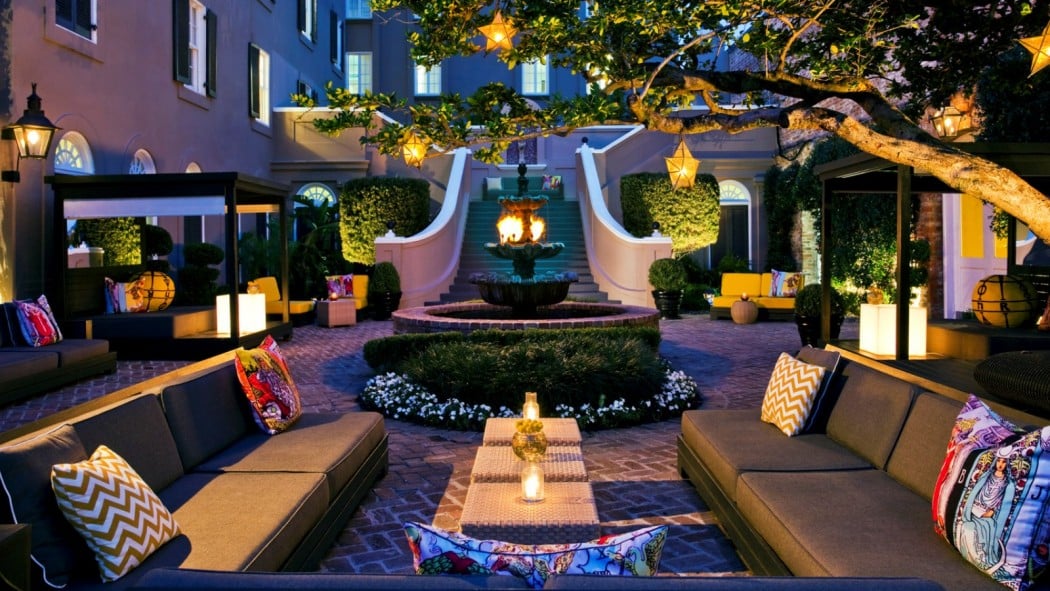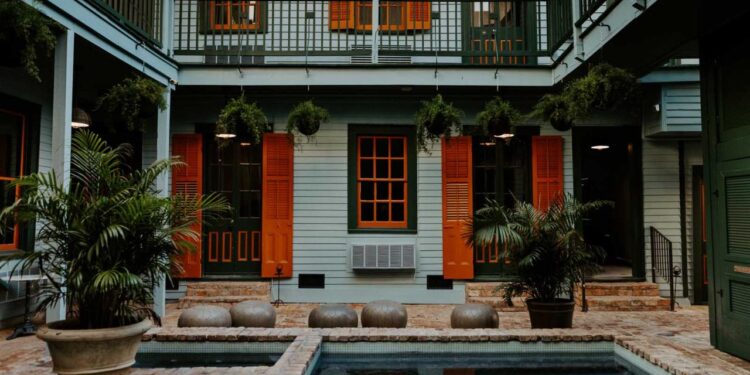In the landscape of modern travel, where a traveler’s experience is increasingly defined by the search for authenticity and connection, the traditional chain hotel is losing its luster. The promise of a standardized room, predictable amenities, and a familiar experience, once a source of comfort, now often feels sterile and impersonal. This shift has given rise to a powerful and growing trend: the pursuit of unique boutique hotel stays. A boutique hotel is more than just a place to sleep; it is a destination in itself, a carefully curated world of distinctive character, personalized service, and innovative design. These hotels tell a story, reflect the culture of their location, and offer a memorable experience that a mass-market chain could never replicate. This comprehensive article will delve into the core principles that define a unique boutique hotel, explore the different styles that are revolutionizing the hospitality industry, and provide a guide on how to find the perfect one for your next adventure.
What is a Unique Boutique Hotel?

The term “boutique hotel” has become a buzzword in the travel industry, often used to describe any small, stylish hotel. However, a true unique boutique hotel is defined by a specific set of characteristics that distinguish it from its competitors.
A. Distinctive Character: A unique boutique hotel has a personality all its own. It is not a franchise or a copy of another property. Its design, its decor, and its atmosphere are a reflection of a singular vision, often inspired by its location, its history, or a particular artistic theme. This distinctive character is what makes a stay so memorable and a hotel a destination in itself.
B. Intimate Scale: Boutique hotels are typically small, with a limited number of rooms. This intimate scale allows the hotel to provide a more personalized and attentive service to each guest. It creates a sense of exclusivity and a feeling of being a guest in a private home rather than a number in a large corporation.
C. Personalized Service: The hallmark of a unique boutique hotel is its service. Without the bureaucracy of a large chain, the staff is often empowered to provide a highly personalized experience. They know you by name, they remember your preferences, and they can offer insider tips on the local area that are tailored to your interests. The service is proactive, intuitive, and genuinely warm, creating a sense of being truly cared for.
D. Innovative Design: A unique boutique hotel is a canvas for innovative design, art, and architecture. The interior is often a showcase of local artisans, unique furniture, and curated art pieces. The design is intentional, with every detail contributing to the hotel’s story and atmosphere. The aesthetic is often a departure from the generic, offering a visual experience that is both inspiring and unforgettable.
The Pillars of a Unique Boutique Experience
A unique boutique hotel stay is a holistic experience that is built on a foundation of several key pillars. These are the elements that create a memorable and truly special journey for the guest.
A. Design and Aesthetics: This is the most visible and often the most celebrated pillar of a boutique hotel. The design is a curated mix of local culture, modern aesthetics, and personal touches. The hotel is often a work of art, with a focus on high-quality materials, bespoke furniture, and a unique color palette. The aesthetic is not just for show; it is an integral part of the hotel’s story and its brand.
B. Story and Narrative: Every unique boutique hotel has a story. This could be a rich history, a unique theme, or a mission-driven purpose. The hotel’s narrative is woven into every aspect of the guest experience, from the decor to the amenities and the service. A hotel in a historic building, for example, might celebrate its past with a collection of vintage photographs and a library of books on local history.
C. Service and Hospitality: The service at a boutique hotel is not just a transaction; it is an act of hospitality. The staff is often a small, close-knit team that is passionate about their work and their location. They are a source of local knowledge, offering personalized recommendations that are a departure from the generic tourist trail. The service is discreet, intuitive, and genuinely warm, creating a sense of being a welcomed guest rather than a paying customer.
D. Location and Context: The location of a unique boutique hotel is a crucial part of its identity. These hotels are often nestled in historic neighborhoods, in the heart of a vibrant urban district, or in a secluded, natural environment. The hotel’s design and its offerings are a direct reflection of its context, providing a sense of place that is a direct connection to the local community and culture.
E. Amenities and Offerings: Boutique hotels offer amenities that are a departure from the norm. Instead of a generic mini-bar, you might find a curated selection of local snacks and craft beverages. Instead of a standard gym, you might find a small, beautifully designed fitness studio with a yoga instructor. The amenities are thoughtful, unique, and tailored to the interests of the hotel’s guests.
Types of Unique Boutique Hotels
The world of boutique hotels is vast and diverse, with a style to suit every taste and preference. Here are some of the most popular types of unique boutique hotels.
A. The Design-Focused Hotel: These hotels are a celebration of architecture and interior design. They are often a collaboration between a visionary owner and a renowned architect or designer. The focus is on creating a visually stunning experience, with every piece of furniture, every light fixture, and every color palette meticulously chosen to create a cohesive and inspiring aesthetic.
B. The Themed or Story-Driven Hotel: These hotels are built around a central theme or a narrative. This could be anything from a hotel that is a tribute to a local author or artist to a hotel that is designed to look like a historic ship or a whimsical fairytale castle. The theme is woven into every aspect of the guest experience, creating a fun, immersive, and unforgettable stay.
C. The Eco-Conscious Boutique: The eco-conscious boutique hotel is at the forefront of sustainable travel. These hotels are committed to minimizing their environmental footprint through green building, renewable energy, and sustainable practices. The luxury is in the intentional design and the peace of mind that comes from knowing your stay is a force for good.
D. The Heritage or Historic Boutique: These hotels are housed in historic buildings, such as a former monastery, a historic mansion, or a repurposed factory. The design is a celebration of the building’s past, with original architectural features, period furniture, and a rich history that is shared with the guests. These hotels offer a unique opportunity to stay in a piece of history and to experience a destination in a truly authentic way.
Planning Your Boutique Hotel Stay

Finding the perfect unique boutique hotel is a journey of its own. Here is some actionable advice for planning your next unforgettable stay.
A. Define Your Desired Experience: Before you start your search, ask yourself what kind of experience you are looking for. Do you want a relaxing, quiet escape or a vibrant, urban adventure? Are you looking for a minimalist aesthetic or a lush, maximalist design? Clarifying your desired experience will help you narrow down the many options available.
B. Research and Reviews: The key to finding a hidden gem is to do your research. Use travel blogs, magazines, and specialized booking sites that focus on boutique hotels. Read reviews from past guests to get a sense of the hotel’s atmosphere, its service, and its commitment to its unique character.
C. Book Directly: Once you have found a hotel that you love, consider booking directly with the hotel. Booking directly often gives you access to special offers, personalized service, and a direct line of communication with the hotel staff. It also allows the hotel to keep a larger portion of the revenue, which helps to support these small, independent businesses.
Inspiring Examples
The world is filled with incredible boutique hotels that are a testament to the power of design and intentionality. Here are a few examples that are pushing the boundaries of hospitality.
A. The Ace Hotel, New Orleans: The Ace Hotel brand is famous for its unique, design-forward hotels that are a hub for local culture. The New Orleans location is a perfect example, with a design that is inspired by the city’s rich history and its vibrant art scene. The hotel features a rooftop pool, a jazz bar, and a curated art collection, making it a destination in itself.
B. The 1 Hotel, Brooklyn Bridge: The 1 Hotel brand is a leader in eco-conscious luxury. The Brooklyn Bridge location is a masterpiece of sustainable design, with a focus on natural materials, a green rooftop, and stunning views of the Manhattan skyline. The hotel is a perfect example of how luxury and sustainability can be beautifully integrated.
C. The Artist Residence, London: The Artist Residence hotels are a small collection of quirky, charming hotels that are a celebration of art and design. Each room is uniquely decorated with a mix of vintage furniture, bold art, and a playful, irreverent aesthetic. The hotels are a perfect example of how a unique vision and a passion for art can create a truly memorable experience.
The Broader Impact of Boutique Hotels
The rise of the boutique hotel has a broader impact that extends beyond the guest experience. These hotels are a powerful force for urban renewal, local economic development, and the preservation of culture and history.
A. Supporting Local Economies: Boutique hotels are often deeply integrated into their local communities. They hire local staff, source food and materials from local suppliers, and partner with local artists and artisans. This investment in the local economy helps to create a more vibrant and sustainable community.
B. Preserving Historic Buildings: Many unique boutique hotels are housed in historic buildings, such as a former bank, a historic mansion, or an old factory. The process of restoring and repurposing these buildings for a new use is a powerful form of urban renewal that helps to preserve the architectural heritage of a city.
C. Fostering Creativity: A unique boutique hotel is a hub for creativity. It is a place where local artists can showcase their work, a space where designers can experiment with new ideas, and a destination where travelers can be inspired by a new aesthetic. The hotels are a living gallery, a place where art and design are a part of the everyday experience.
Conclusion
In a world where travel is often reduced to a transaction and a hotel room is just a place to sleep, the unique boutique hotel stands as a powerful reminder of the true purpose of a journey: to discover, to connect, and to be inspired. These hotels are more than just a bed for the night; they are a destination in their own right, a carefully crafted experience that tells a story, reflects a culture, and leaves a lasting impression on the traveler. The allure of the unique boutique hotel is in its rejection of the generic and its celebration of the singular. It is a choice to step outside the familiar and to embrace an adventure that is both personal and profound.
The revolution of the boutique hotel is not just a trend; it is a fundamental shift in the hospitality industry. It is a response to a modern traveler who is seeking a deeper, more authentic connection to the places they visit. As a result, the industry is moving towards a model where personalization, storytelling, and innovative design are the new benchmarks of luxury. This shift is a positive one, as it not only creates more memorable experiences for the guest but also has a profound positive impact on local communities, historic preservation, and the global creative economy.
For the traveler, the choice to stay at a unique boutique hotel is an act of intentionality. It is a decision to invest in an experience that is a reflection of your own values—whether that be a love for art, a passion for history, a commitment to sustainability, or simply a desire for a truly unforgettable stay. The journey of finding and booking a unique boutique hotel is the first step in a larger adventure, a signal that you are ready to explore a world that is not just seen but felt, experienced, and remembered long after you have returned home. So, on your next trip, ask yourself: do you want a room, or do you want a story? The unique boutique hotel is waiting to tell you one.





Discussion about this post